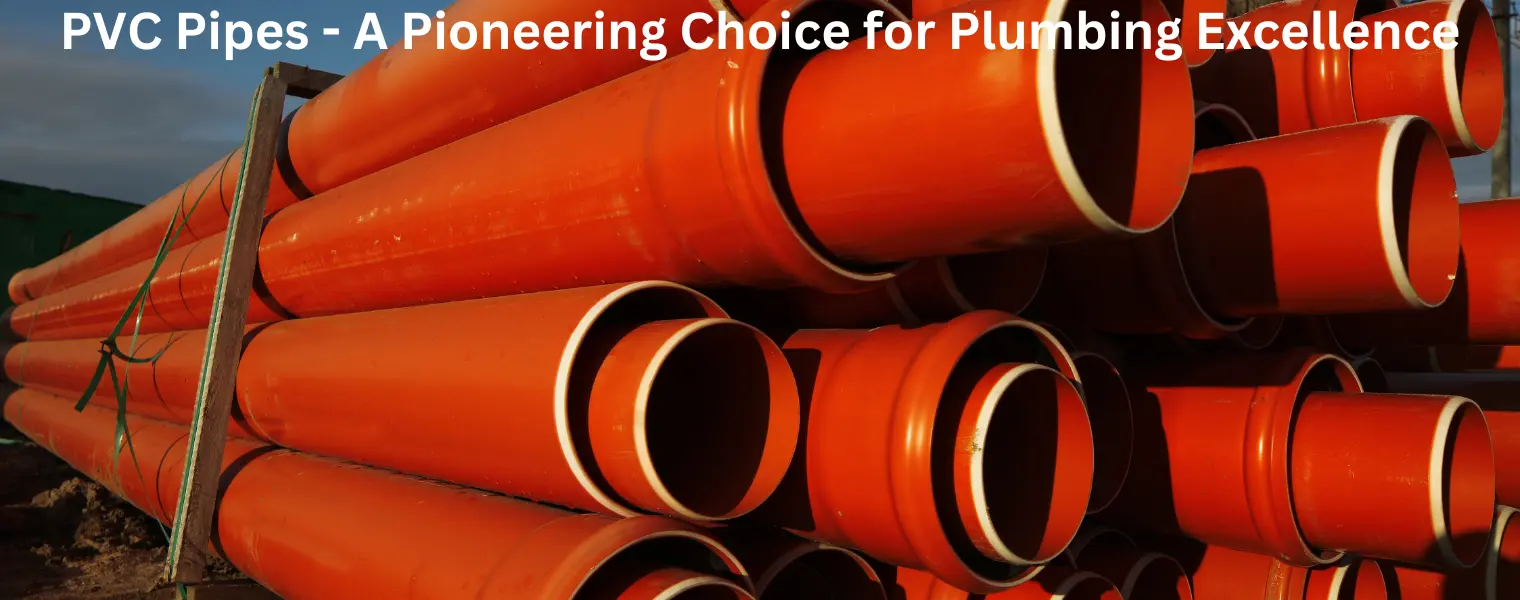
In the realm of plumbing materials, Polyvinyl Chloride, or PVC, stands as a stalwart pioneer offering a myriad of advantages that have positioned it as a preferred choice for a wide array of plumbing applications. From residential plumbing systems to industrial infrastructure, the advantages of PVC pipes are both diverse and compelling. Join us on a journey to explore why PVC has emerged as a standout material for meeting various plumbing needs.
PVC pipes are renowned for their exceptional durability. Unlike traditional materials prone to corrosion, PVC resists degradation from a variety of environmental factors. It is impervious to rust, chemicals, and even biological agents, ensuring a prolonged lifespan for plumbing systems. The longevity of PVC pipes significantly reduces the need for frequent replacements, translating to cost savings and sustainable resource management.
One of the standout features of PVC pipes is their lightweight nature. In comparison to heavier materials like metal or concrete, PVC is remarkably easy to handle and install. This characteristic not only simplifies transportation and logistics but also reduces the labor and equipment required for installation. The lightweight nature of PVC makes it an ideal choice for both professional plumbers and DIY enthusiasts alike.
Corrosion can be the silent nemesis of traditional plumbing materials. PVC, however, is impervious to corrosion, making it an excellent choice for environments with high moisture, varying temperatures, or exposure to corrosive substances. This corrosion resistance ensures that PVC pipes maintain their structural integrity over time, providing a reliable conduit for water and other fluids.
PVC pipes are highly resistant to a wide range of chemicals, making them suitable for diverse applications. Whether used in industrial settings where corrosive substances are prevalent or in residential plumbing systems where exposure to household chemicals is common, PVC pipes demonstrate resilience in the face of chemical challenges. This resistance contributes to the long-term reliability of PVC as a plumbing material.PVC pipes are highly resistant to a wide range of chemicals, making them suitable for diverse applications. Whether used in industrial settings where corrosive substances are prevalent or in residential plumbing systems where exposure to household chemicals is common, PVC pipes demonstrate resilience in the face of chemical challenges. This resistance contributes to the long-term reliability of PVC as a plumbing material.
The interior surface of PVC pipes is exceptionally smooth, creating minimal friction for the flow of water or other fluids. This smoothness not only facilitates efficient fluid transport but also reduces the risk of clogs and blockages within the plumbing system. The smooth flow characteristic contributes to the overall efficiency and performance of PVC pipes in conveying liquids.
From a financial perspective, PVC pipes offer a cost-effective solution throughout their lifecycle. The ease of installation and the reduced need for specialized equipment contribute to lower installation costs. Moreover, the durable and low-maintenance nature of PVC minimizes ongoing expenses related to repairs and replacements, making it an economically sound choice for plumbing systems.
PVC pipes are inherently eco-friendly. They are recyclable, and the manufacturing process requires fewer natural resources compared to some traditional materials. Choosing PVC for plumbing needs aligns with sustainability goals by reducing environmental impact and promoting responsible resource management.
PVC Pipes stands out in plumbing materials for its versatility, durability, corrosion resistance, lightweight properties, and cost-effectiveness. Polyfab, a leading provider of high-quality PVC pipes and fittings, goes beyond material selection. Contact us which signifies selecting a partner committed to success, with a focus on quality, sustainability, innovation, and efficiency for robust and dependable infrastructure projects.